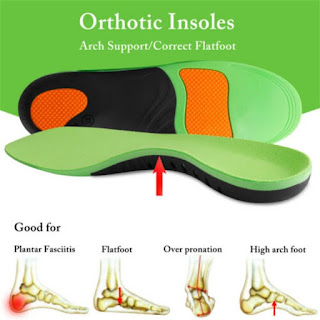what insoles do doctors recommend
Introduction
A. Importance of Insoles in Foot Health Insoles go beyond just adding an extra layer in your shoes; they can significantly affect foot health, providing support, comfort, and relief from various conditions.
B. The Role of Doctors in Recommending Insoles Doctors play a crucial role in assessing and diagnosing foot-related issues. They recommend insoles as part of treatment plans to improve patients' overall foot health and mobility.
C. Purpose of the Outline This outline aims to shed light on the types of insoles doctors commonly recommend, the conditions that require them, and the factors doctors consider in their recommendations.
Types of Insoles Recommended by Doctors
A. Orthotic Insoles
- 1. Definition and Purpose Orthotic insoles are specially designed to correct irregular foot biomechanics, providing support and stability.
- 2. Conditions for Which They Are Recommended Doctors often recommend orthotic insoles for issues like overpronation, plantar fasciitis, and various structural foot abnormalities.
B. Arch Support Insoles
- 1. Definition and Purpose Arch support insoles focus on providing extra support to the arch of the foot, reducing strain on the plantar fascia.
- 2. Conditions for Which They Are Recommended Doctors may suggest arch support insoles for patients with flat feet or high arches, among other conditions.
C. Cushioning Insoles
- 1.Definition and Purpose Cushioning insoles are all about comfort and shock absorption, making them beneficial for individuals with foot pain and those seeking extra cushioning.
- 2. Conditions for Which They Are Recommended Doctors recommend cushioning insoles for patients dealing with conditions like metatarsalgia or general discomfort.
Common Foot Conditions Requiring Insoles
A. Plantar Fasciitis
- 1. Symptoms and Causes Exploring the symptoms and common causes of plantar fasciitis.
- 2. Insoles Recommended by Doctors A look at the specific insoles doctors often recommend to alleviate the pain and discomfort associated with this condition.
B. Flat Feet (Pes Planus)
- 1. Symptoms and Causes Understanding the symptoms and causes of flat feet.
- 2. Insoles Recommended by Doctors Discovering the insoles that can help individuals with flat feet gain better arch support and improved gait.
C. Overpronation
- 1. Symptoms and Causes Explaining the symptoms and causes of overpronation.
- 2. Insoles Recommended by Doctors Exploring the insoles doctors suggest to correct overpronation and prevent associated problems.
Factors Considered by Doctors When Recommending Insoles
A. Gait Analysis
- 1. Importance in Insole Recommendation The significance of gait analysis in understanding an individual's walking pattern and identifying potential issues.
- 2. How Doctors Conduct Gait Analysis A closer look at the methods and tools used by doctors to analyze a patient's gait.
B. Patient's Medical History
- 1. Conditions and Injuries Examining a patient's medical history to identify relevant conditions or injuries affecting their foot health.
- 2. Allergies or Sensitivities Addressing allergies or sensitivities to certain materials or components used in insoles.
C. Shoe Selection
- 1. Matching Insoles to Footwear Exploring the importance of selecting insoles that match the patient's shoes and lifestyle.
- 2. Ensuring Proper Fit Discussing the significance of ensuring insoles fit correctly within the chosen footwear.
Custom-Made vs. Over-the-Counter Insoles
A. Custom-Made Insoles
- 1. The Process of Customization Detailing the process of creating custom-made insoles tailored to an individual's specific foot shape and needs.
- 2. Situations Where They Are Necessary Identifying situations in which custom-made insoles are the most appropriate solution.
B. Over-the-Counter Insoles
- 1. Advantages and Limitations Highlighting the benefits and potential limitations of readily available over-the-counter insoles.
- 2. Conditions They Are Suitable For Discussing the conditions and scenarios where over-the-counter insoles provide effective support.
Patient Education and Follow-Up
A. Doctor's Role in Educating Patients Exploring how doctors educate patients about the proper use and care of insoles, as well as expected outcomes.B. Importance of Follow-Up Appointments Emphasizing the significance of follow-up appointments to assess progress, make necessary adjustments, and ensure optimal results.
C. Monitoring and Adjusting Insoles as Needed Discussing the need for periodic monitoring and adjustments to insoles to accommodate changes in a patient's condition or lifestyle.
Conclusion
A. Recap of the Importance of Doctor-Recommended Insoles Summarizing the key role of insoles recommended by doctors in promoting foot health and overall well-being.B. Encouragement for Seeking Professional Advice Encouraging individuals to consult with healthcare professionals for personalized recommendations regarding insoles.
C. Promoting Foot Health and Overall Well-Being Emphasizing the positive impact of well-chosen insoles on foot health and the overall quality of life.



.jpg)



0 Comments